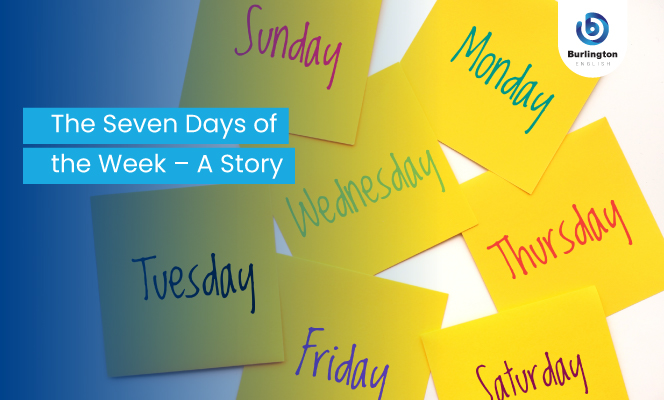According to the 2011 census, around 129 million Indians speak English as their first, second or third language. That’s more than the total population of the United Kingdom, Australia and New Zealand combined. With so many Indians speaking the language, it is no wonder that a very distinct variety of English has evolved in the subcontinent. Indeed, there are many books, dictionaries and word lists dedicated to Indian English, the earliest and best-known being Yule and Brunell’s Hobson-Jobson, originally printed in 1886.
But do you want your spoken and written English to be chock-full of Indianisms? While this may be fine for day-to-day communication in India, in many professional (for example, a business presentation for an international audience) and academic (for example, an IELTS exam) situations, standard international English is more suitable.
Indian English features a large number of unique political, sociological, and administrative terms which may not be understood outside Indian English-speaking communities. Examples include hartal, eve-teasing, vote bank and swaraj. It also contains a number of Anglo-Indian words such as tiffin, hill station, and gymkhana, which do not appear in standard international English.
Indian English Examples
So, let’s see how many you can spot! Have a look at the sentences below. Your task is to identify the Indian English word or expression, and then change it to a more standard, international English alternative.
- Many cinema halls have been forced to close due to the pandemic.
- We had lunch with our friends at a small roadside hotel.
- Our organization places great stress on knowledge upgradation.
- Please revert with the required information.
- Bus windows should be kept closed at all times to prevent chain-snatching.
- No one is available at 2 p.m. Let’s prepone the meeting to 11 this morning.
- Good morning, Madam! What’s your good name?
- I passed out of college in 2017 and I’m doing my graduation in Scotland.
- “Where are you originally from?
“I belong to Kolkata.” - I’ll speak to you later – Susmita is eating my brain here!
- The entrance is on the backside of the building.
- He didn’t reply back to any of my emails.
- Have you got five minutes, Vikrant? I need one help.
- It was very quiet in the office today, so I had very less work.
- Let’s discuss about the pay rise at this morning’s meeting.
- I gave my English exam yesterday – it was really difficult.
- “What do you want for dinner?” “Let’s order for pizza.”
- Five into two is ten.
- They require copies of all the contract documents and annexes, so please do the needful.
- “What do you do for timepass?”
“I watch Netflix.”
Indianism in the English language with corrections
Did you spot all the Indianisms and come up with their alternatives? Check your answers below.
- Many cinema halls have been forced to close due to the pandemic.
In British English, the standard term is cinema; in American English, the term is movie theater - We had lunch with our friends at a small roadside hotel.
In standard English, hotel doesn’t refer to an eatery. Alternatives include café, restaurant, or diner. - Our organization places great stress on knowledge upgradation.
In standard English, we’d use upgrading knowledge rather than knowledge upgradation. - Please revert with the required information.
In standard English, revert means to return to a previous state. You could use “please get back to me” instead of “please revert.” - Bus windows should be kept closed at all times to prevent chain-snatching.
Chain-snatching only happens in India! A similar sign in standard English might read: “Please keep the bus windows closed to prevent theft.” Chain-snatching is also very similar in meaning to the more standard term pick-pocketing. - No one is available at 2 p.m. Let’s prepone the meeting to 11 this morning.
You can only prepone something in India! Elsewhere in the world, you would bring it forward. As in: Let’s bring the meeting forward to 11 a.m. - Good morning, Madam! What’s your good name?
It may be a good name, but it’s not correct. What’s your name? or Can you tell me your name, please? are both better alternatives. - I passed out of college in 2017 and I’m doing my graduation in Scotland.
Two Indianisms here. First of all, passed out. In standard English, passed out means fainted, or lost consciousness, while graduation refers to the ceremony at which you receive an academic degree. Here’s the sentence in standard English: I finished college in 2017 and now I’m doing my undergraduate degree in Scotland. - “Where are you originally from?”
“I belong to Kolkata.”
You can belong to a club, but you can’t belong to a city in standard English. I’m from Kolkata, is a better answer. - I’ll speak to you later – Susmita is eating my brain here!
This seems to be a direct translation from the Hindi. One equivalent is “chewing my ear off,” which means talking non-stop. - The entrance is on the backside of the building.
Careful with this one! In standard English, backside has only one meaning – your bottom. The correct expression is at the back of the building. - He didn’t reply back to any of my emails.
In this sentence, the word back is redundant. He didn’t reply to my emails is fine. - Have you got five minutes, Vikrant? I need one help.
Only one help? Not two? Try replacing one with some. - It was very quiet in the office today, so I had very less work.
Less is a degree of little: little – less – least. The correct phrase is very little work. - Let’s discuss about the pay rise at this morning’s meeting.
In standard English, the verb is discuss – not discuss about. - I gave my English exam yesterday – it was really difficult.
In standard English, we don’t give an exam, rather we take an exam. - “What do you want for dinner?” “Let’s order for pizza.”
This one also has an unnecessary word – this time it’s for. The correct expression is “Let’s order pizza.” - Five into two is ten.
This can get very confusing. The correct way to say this in standard English is “five multiplied by two is ten” or “five times two is ten.” - They require copies of all the contract documents and annexes, so please do the needful.
Although not technically wrong, this phrase sounds extremely archaic (i.e. like something from a hundred years ago). You could replace it with “please take care of it” or “please make sure this gets done.” - “What do you do for timepass?”
“I watch Netflix.”
There’s no equivalent word in standard English. Try using, “What do you do to pass the time?”+ or “How do you spend your (free) time?” instead.
Excluding Indianisms from your spoken and written English will help you to sound more natural and sophisticated in professional, academic, and social situations. Which Indianisms do you use the most?
A great way to make your English more international is to join an online English speaking class. Our expert tutors will alert you to your Indianisms during our live, online classes, while our patented Speech Trainer technology will help you to improve your pronunciation and speak English like a native.







